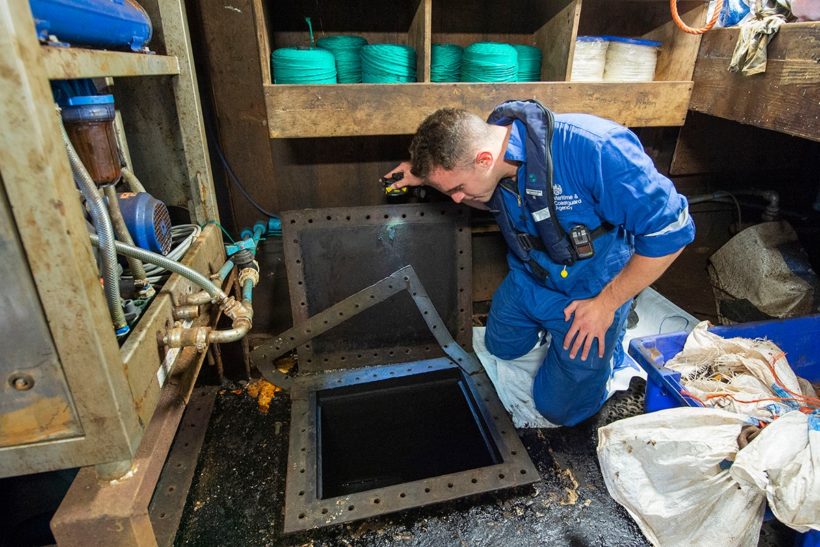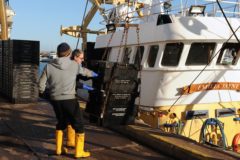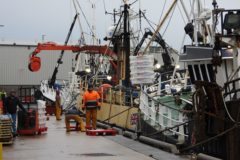The Maritime and Coastguard Agency (MCA) is reminding the industry to prepare for new out-of-water inspections of small fishing vessels, to avoid the updated code catching fishermen out.
The regulatory body wants fishermen to take advantage of the advice and guidance on offer ahead of their next inspection, so they are prepared for the changed requirements.
The updated ‘Code of Practice for the Safety of Small Fishing Vessels of Less than 15m LOA (Length Overall)’ came into force on 6 September, 2021, and strengthened the minimum safety requirements that vessels are expected to meet to obtain a small fishing vessel certificate.
The new requirements are part of a concerted effort to boost safety standards in the industry – following the news that 10 UK commercial fishermen lost their lives in accidents at sea last year.
The requirements include minimum safety rules on construction, watertight and weathertight integrity, stability, machinery and electrical equipment, fire protection, crew protection and life-saving appliances. In addition, an inspection is now in two parts, with a surveyor required to inspect a vessel both in and out of the water.
Paul Scotter, a marine surveyor at the MCA, said: “The biggest change is the out-of-water inspection (as well as the in-water inspection) of a vessel for the safety certification.
“Failure to prepare or present a vessel will mean the surveyor is unable to complete the safety checks.
“There have been a few examples where it is clear the new rules have not been looked at, and surveyors are finding that not everyone is fully compliant with the requirements of the updated code.
“It is a more comprehensive safety inspection than ever before. The checks may take longer than they used to, but they can also be completed on two days, to accommodate the out-of- water inspection.
“And fishermen have up to a year after their in-water inspection to get the out-of-water done.
“An inspection remains free.”
Paul Scotter warned, however, that fishermen’s certificates will not be valid if they don’t get their out-of-water inspection done in the timeframe stipulated.
“The first port of call is to look at the guidance online for applying the code, to ensure you are familiar with the requirements – but if there are any questions, talk to your local Marine Office,” he added.
“We are doing what we can to help, answering queries and providing advice. Once an inspection is arranged, we’re sending out links to further guidance.
“We don’t want to have to fail a vessel at inspection, and we don’t want to stop fishermen from doing their jobs.
“We are here to make sure the vessels – and the fishermen onboard – return to shore safe and well. Our inspections are vital to ensuring a basic level of safety, something most of the industry is behind and supportive of.”
Paul Scotter said that the majority of fishermen are already ‘up to code’, and have been for years.
He added: “This is as much about the MCA reflecting the growing standards in the industry as that the overall benchmark for safety has gone up.”
Guidance on the new code can be found here.
This story was taken from the latest issue of Fishing News. For more up-to-date and in-depth reports on the UK and Irish commercial fishing sector, subscribe to Fishing News here or buy the latest single issue for just £3.30 here. Main image credit: Geoffrey Lee/Planefocus.






